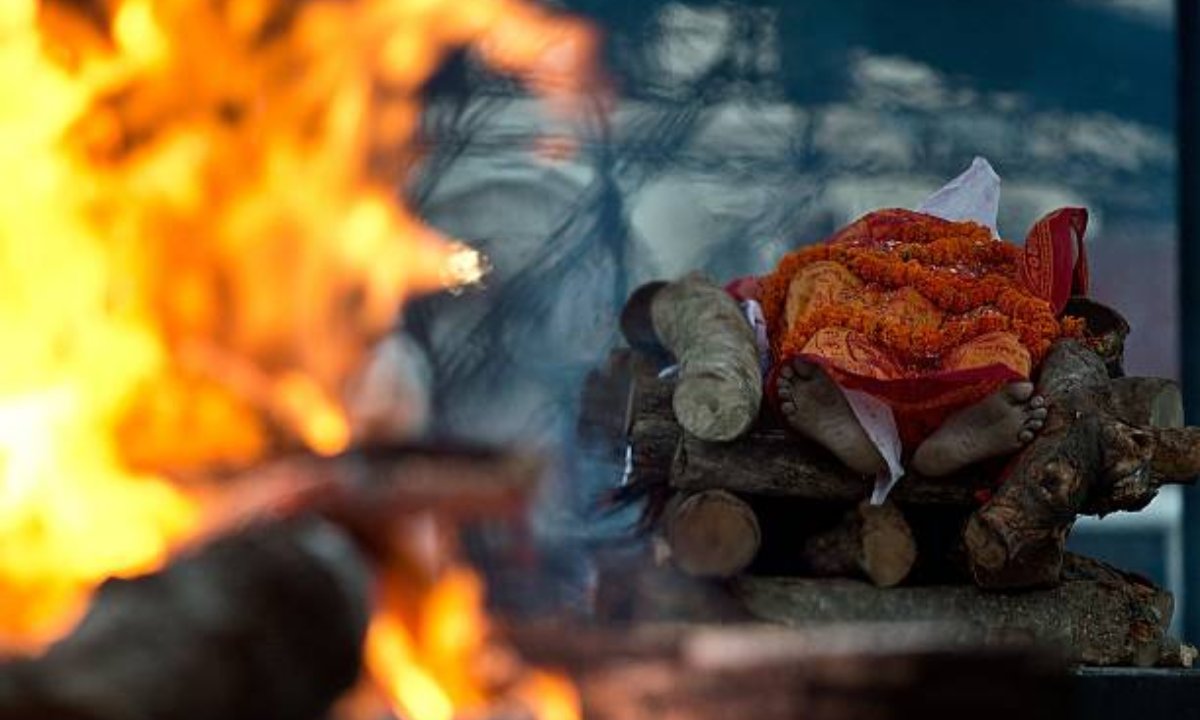Introduction:
The Shraddha Ceremony, commonly known as Shraddha Pooja, holds immense importance in Hindu culture. It is a special day marked by respect and gratefulness that is devoted to paying tribute to deceased ancestors. This important ritual is performed to ensure a peaceful and comfortable journey for our loved ones after their departure. By engaging in the Shraddha rites, Hindus express gratitude for the existence of their ancestors and pray for their eternal peace.
Significance of the Shraddha Ceremony:
The Shraddha Ceremony is an integral part of the post-funeral rituals in Hindu tradition that allows us to show our gratitude and appreciation to our ancestors, as well as recognise the valuable contributions they have given to our family lineage. It is believed that performing these rituals helps guide the souls of the departed to their destined realms, providing them solace and spiritual elevation. Additionally, the Shraddha Ceremony allows descendants to show gratitude, seek blessings, and foster a sense of connection with their forefathers.
Timing of Shraddha Rites:
The Shraddha Ceremony is usually performed on specific dates in accordance with the Hindu lunar calendar. The rituals are conducted for both the departed mother and father, but separately, observing their respective “thithi” or lunar days. Pitru Paksha or Shraddha Paksha, a 15-day period preceding Sharad Navaratri in autumn, is considered an opportune time to perform these ceremonies for the entire community of ancestors, known as “Pitr.”
Performing the Shraddha Rites:
The Karta, who is in charge of carrying out the rituals, takes an active role in executing them out during the Shraddha time. The Karta begins by inviting Brahmanas, who represents the divine presence, to partake in the ceremonies. They are treated with the utmost respect and offered worship and meals as a gesture of honour and gratitude.
One of the central rituals in the Shraddha Ceremony is the “Homa,” a fire ritual aimed at appeasing Agni, the god of fire. The Karta performs the Homa to transmit offerings and prayers to the departed ancestors. This ritual symbolizes the sustenance and protection of the ancestral souls on their spiritual journey.
Another essential aspect of the Shraddha rites is the “Pinda Pradaana” ceremony, where rice balls are offered to the departed souls. These rice balls represent nourishment and sustenance for the ancestors in their new realms. The Karta carefully makes these offerings to three generations of ancestors, expressing love, respect, and gratitude for their continued presence and guidance.
After the completion of the rituals, the Karta extends hospitality to the Brahmanas, who played a pivotal role in the ceremonies. Dakshina, a fee or donation, is offered as an expression of gratitude and appreciation for their participation.
Assistance with Shraddha Rituals:
Understanding the significance and complexity of the Shraddha Ceremony, there are various resources available to support families in performing these rituals. Funeral service providers, well-versed in the customs and traditions, like Beleiv, offer assistance in organizing and conducting the Shraddha rites. Their expertise ensures that the rituals are performed with utmost sincerity, respect, and adherence to the prescribed traditions.
Simplified Shraddha Rituals:
In situations where performing the complete Shraddha rituals may not be feasible due to time constraints or unforeseen circumstances, there are simpler alternatives that can be adopted. One such alternative is to offer sesame seeds in flowing water, which is considered an auspicious act. Additionally, providing sesame seeds to Brahmanas is seen as a symbolic gesture of offering to the ancestors. During this time, giving food to animals and birds like cows and crows is seen as a noble deed. Making donations of food, clothes, and utensils can also help fulfil the essence of the Shraddha rituals.
Significance of the First Year:
The first year following a loved one’s passing holds particular significance in performing the Shraddha rituals. It is believed that during this time, the soul gains momentum in its journey to higher realms, aided by prayers, offerings, and remembrance of the family. The Shraddha rites conducted during this period serve as a source of support and guidance for the departed soul as it embarks on its spiritual path.
Benefits of Shraddha Rituals:
The observance of Pitru Paksha and Shraddha Paksha rituals for a year brings several benefits to the individual and the family. These include:
1. Financial Stability and Progress: The Shraddha rites are believed to enhance financial stability and prosperity in the lives of the descendants.
2. Acquisition of Wealth and Assets: Performing the Shraddha rituals is believed to facilitate the acquisition of immovable property and assets.
3. Smooth Business Operations: The Shraddha ceremonies are said to bless business ventures, ensuring smoothness in operations and progress in endeavours.
4. Worldly Lessons: The Shraddha rituals provide valuable lessons and guidance for navigating worldly affairs, leading to wisdom and success.
5. Spiritual Enlightenment: The observance of Shraddha fosters spiritual growth and enlightenment, allowing individuals to deepen their connection with the divine.
6. Education and Knowledge: The rituals are believed to bestow blessings for educational pursuits, enhance knowledge, and promote learning.
Chants for Auspicious Atmosphere:
During the Shraddha rituals, reciting sacred chants can create an auspicious atmosphere. Chants such as the Tarak Chant of Shri Gurudev Datta and the Om-Om Shri Gurudev Datta’s Tarak Chant are considered to invoke positive energies and invoke the divine presence, enhancing the spiritual ambience of the ceremonies.
Conclusion:
The Hindu Shraddha Ceremony is a profound expression of love, gratitude, and remembrance for departed ancestors. By performing these rituals, Hindus seek to ensure the peace and spiritual elevation of their loved ones’ souls. The Shraddha rites, performed with sincerity and devotion, foster a sense of connection between past and present generations. With the support of funeral service providers like Beleiv, families can navigate these rituals, upholding the timeless traditions and customs of honouring their ancestors.
Through the sacred acts of remembrance and prayer, the Hindu Shraddha Ceremony keeps alive the bond between the living and the departed, ensuring a sense of continuity, guidance, and eternal connection with one’s ancestral roots. Beleiv




